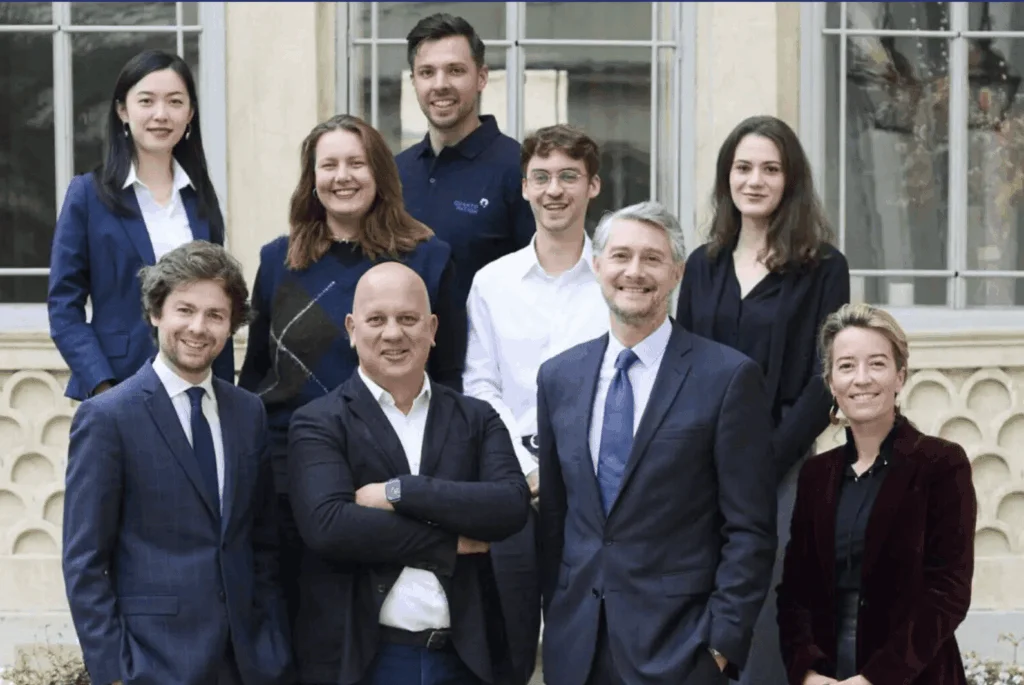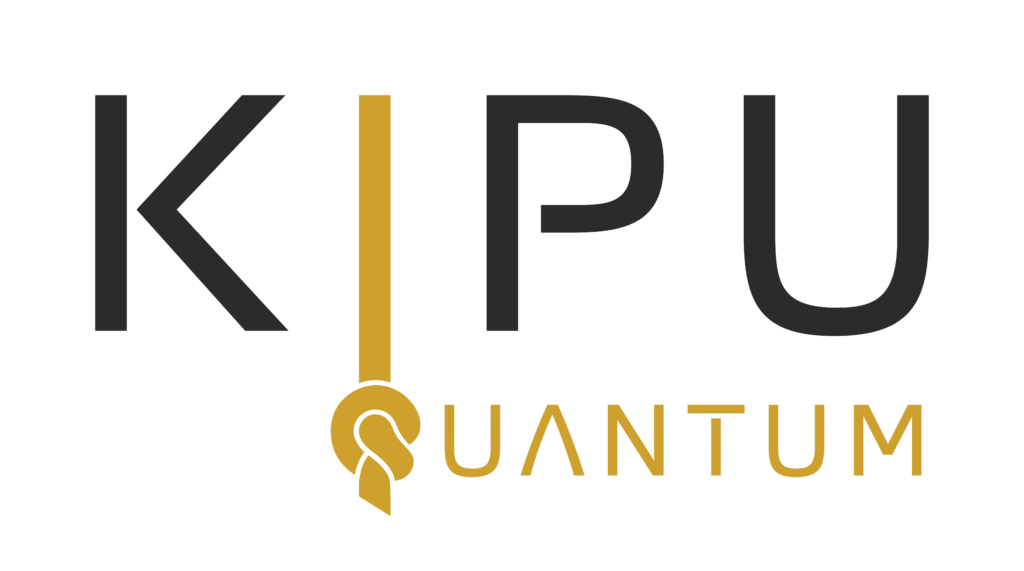
When you think of science fiction, some of the most obvious things that come to mind might be aliens, time travel, laser guns, or artificial intelligence. Many of these themes within science fiction have to do with quantum technology. It seems that as long as there has been modern science fiction (post-WWII), there has been quantum technology portrayed within science fiction. In fact, quantum physics’ use within science fiction technology became so popular it started its own literary subgenre. “Quantum Fiction,” coined in 1996 by writer Vanna Bonta, is a subgenre of literature that focuses on interactions within the modern world and how they are influenced by quantum theory and quantum physics. Quantum fiction uses quantum physics as a storytelling device, often using non-linear storylines to mimic the confusing nature of quantum physics. While quantum fiction does not have to be science-themed, it usually is. It also highlights how human perception is influenced by quantum physics. An example of this is Quantum Night by popular writer Robert J. Sawyer, whose book highlights a change in mental state or consciousness when electrons in the brain change their state of superposition. It’s important to note that these works are fictitious in nature, yet include some heavily researched passages that have kernels of scientific accuracy within them. These sections (lovingly called “info-dumps” by most writers) are often skipped through due to their “boring” nature. This becomes a problem later for the general public, as they may have inaccurate, or altogether entirely wrong views of quantum technology, due to their exposure to science fiction.
As most of the general public has been exposed to science fiction through book or film form, most of them have been additionally exposed to a certain portrayal of quantum technology within science fiction. According to Professor Gerry Canavan of Marquette University: “Science fiction has generally done a very poor job of explaining the quantum theory, and usually uses it as a synonym for ‘magic’ and treats it as making all manner of bizarre conceits possible.” This has led to a so-called “quantum hype” by the general public when they view the exciting new developments within the quantum technology industry. According to Sean Carroll, a research professor at Caltech and a popular podcaster of Sean Carroll’s MindScape Podcast, “There are many sources of hype around quantum technologies, not least of which from the companies that are trying to build them.” Hype can be extremely helpful when it comes to advertising for innovative technology but can be detrimental to scientific accuracy. This quantum hype deludes the expectations of what quantum technology actually is. As it has been equated to “magic” within science fiction books and film, many believe that the development of actual quantum technology means the development of these “magical” devices. For example, many believe that the quantum technology industry will develop improved (even rogue) artificial intelligence, as portrayed by science fiction technology. In reality, quantum technology development promises no “magic,” but instead advancement in everyday technology.
The quantum technology industry has been on the rise for some time. Many experts have predicted an impending boom in this sector, which is promising for technology investments. In 2016, the rise of quantum technology began with the EU “Quantum Manifesto,” a document signed by 3,400 European scientists calling for coordinated and funded R&D for quantum physics research into new technology. The next year came the all-too-famous “Quantum Supremacy” announcement by Google and NASA, who were able to develop a working quantum computer by the end of 2017. Quantum technology fever continued in 2018 as the EU created the Quantum Technology Flagship, a €1 billion, 10-year-long quantum technology research project. While it may seem like the quantum hype has slowed down since 2018, it has continued to increase as quantum technology research has started to become more commercialized, growing the technology sector and adding irresistible opportunities for technology investments.
Many in the general public who love the advanced technology within science fiction books such as Ender’s Game or Ready Player One do not fully understand the research and the implications of this technology, as they may perceive it as more of a type of “magic”. Dr. Canavan added that: “science fiction gives people a somewhat unrealistic perspective on how science is done and what science makes possible, as well as trends to bias people toward narratively interesting edge-case scenarios (both utopian and apocalyptic) as opposed to the relatively ‘boring’ middle-of-the-road outcomes that are much more likely and much more difficult to get a handle on.”

While “magic” portrayed in science fiction technology doesn’t appear to have limits, research on quantum technology certainly does. This can be difficult for the general public to understand. Like any research process, the research of quantum physics and quantum technology is constantly ongoing and has its limits which can slow down technological development. According to an article written in Futurist, the biggest limit within quantum technology is the engineering challenges. These challenges are no more apparent than in the field of quantum computing. In a 2007 Nature paper titled: “Commercialize Quantum Technologies in Five Years,” the authors discuss that due to the engineering challenges of quantum computing, a commercialized fully working quantum computer is years away. These engineering challenges include hardware improvements to make the technology more reliable. While these slow-downs may not seem beneficial to the quantum technology- industry as a whole, it is beneficial for potential investors within this technology. The authors of this paper state:” if early quantum-computing devices can offer even a modest increase in computing speed or power, early adopters will reap the rewards.”
As quantum technology research and development continues forward, it’s important for the general public to understand where their perceptions of this technology come from. Science fiction does have a very important role in inspiring scientists and the public to think big and imagine a productive future. As professor James Edwin Gunn from the University of Kansas stated in an interview: “it is also true that science fiction can inspire young people to pursue careers in science and engineering. As Carl Sagan wrote once: ‘The reality of science must be preceded by the romance of science.’ Science and engineering laboratories (and NASA) are filled with science-fiction readers.” Science fiction has a place in introducing quantum technology to the public, but it also must be taken with a grain of salt when looking at the scientific accuracy within science fiction technology. It’s important to realize the purpose of science fiction writers when looking at how people view quantum technology. According to popular science writer Robert Charles Wilson: “I don’t think it’s the job of science fiction writers to “communicate science,” but our best work has been, at least in part, an imaginative response to the emerging scientific understanding of the world and to the possible trajectories of technological progress.” This should be kept in mind when looking at the accuracy of science fiction as a whole.
It’s clear that science fiction does have its importance in both inspiring and somewhat educating the public. As Regents Professor of Science Fiction Studies at Georgia Institute of Technology, Lisa Yaszek states: “If the goal is to get people thinking, then science fiction can do that in all its forms.”
References:
Lant, K. Quantum Physics is Bringing Our Wildest Sci-Fi Dreams to Life. (2017, April 1). Futurism. Retrieved June 7, 2021, from https://futurism.com/quantum-physics-bringing-wildest-sci-fi-dreams-life
Martin, G. Should We Be Worried About Rogue AI? We Ask the Experts. (2017, August 10). Cal Alumni Association. https://alumni.berkeley.edu/california-magazine/just-in/2017-08-10/should-we-be-worried-about-rogue-ai-we-ask-experts
Mirenayat, S.A. Soofastaei, E. (2017, April 19). 13 Questions on Science Fiction: Interview with Professor James Edwin Gunn. Journal.finfar.org. http://journal.finfar.org/articles/13-questions-on-science-fiction-interview-with-professor-james-edwin-gunn/
The Parts Readers Skip: Unnecessary Scenes & Info Dumps. (2020, September 28). Firewatersite. https://firewatersite.wordpress.com/2020/09/28/the-parts-readers-skip-unnecessary-scenes-info-dumps/
Quantum fiction. (2021, June 2). Wikipedia. https://en.wikipedia.org/wiki/Quantum_fiction#Novels
Science Fiction to Science Fact: The Quantum Age. (2018, March 14). QuantumXC. https://quantumxc.com/science-fiction-to-science-fact-preparing-for-the-quantum-age/
Tavares, F. (2019, October 23). Google and NASA Achieve Quantum Supremacy. NASA. https://www.nasa.gov/feature/ames/quantum-supremacy
Interviews:
Gerry Canavan of Marquette University
Sean Carroll of Caltech
Lisa Yaszek of Georgia Institute of Technology
Robert Charles Wilson
If you found this article to be informative, you can explore more current quantum news here, exclusives, interviews, and podcasts.
















